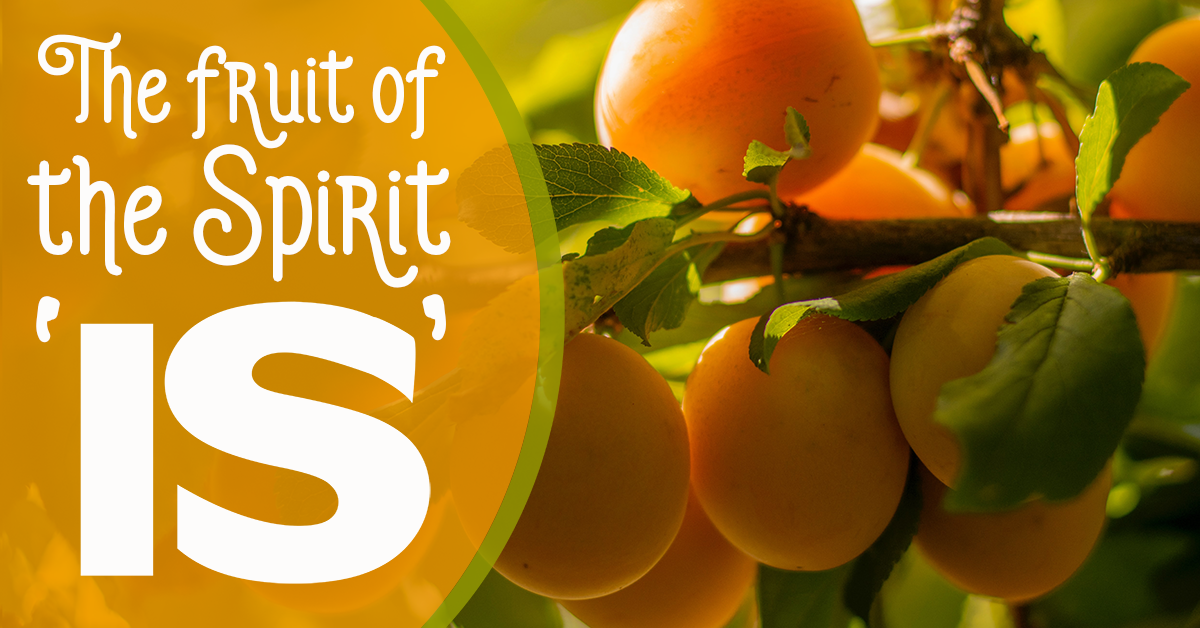Are you a fruit inspector?
On a recent trip to Oklahoma, we attended worship with our son and his family. On that Sunday, the former preacher came out of retirement to support the current pastor, who was on a much-needed sabbatical after the stress and unimaginable tragedies of the pandemic.
As the retired pastor, he wasn't concerned about being too bold in his message, and without worrying about stepping on toes, he asked the question, "Would you join a church full of people like yourself?" Since we were visitors and didn’t know anyone, I looked around to see the response from the congregation. There was laughter and some uneasy looks as heads nodded up and down in the affirmative, or in contrast, many were looking down or shaking their heads side by side when they realized their answer would be “No way.” He then challenged everyone to inventory their commitment: Do you have a relationship with Jesus? Are you a fellowship builder and encourager? Are you a Godly example (do others see Jesus in you)? Do you have a positive attitude toward the church? Do you commit to worship (personally and corporately)? Are you a tither or tipper?
Although I agree with what he was trying to get across, the questions didn’t seem appropriate during worship. My first thought was how visitors or new Christians would feel about the requirements necessary to gain access to the "club." My mind went to Hillspring and all our ministries where an interrogation is not necessary to be the hands and feet of Jesus.
After I got over my frustration that he was being judgmental in assuming everyone in attendance already had a personal relationship with Jesus, he did make the point that even if we think we are a candidate for cloning, it’s not our responsibility to be a fruit inspector over every person we meet. Jesus assures us that we "will know them by their fruits." A fruit tree may be beautiful, decorative, and offer pleasant shade in the summer, but its primary purpose is to bear fruit, and it is judged by what it produces and not by how it looks.
During our sermon series Bear Fruit, we learned from local vintners how grapevines need to be thinned for the grapes to thrive. We are created the same, and our negativity and judgmental thoughts need to be thinned so God's goodness is revealed. Spiritual pruning enhances spiritual growth by removing whatever inhibits that growth.
“I am the true vine, and my Father is the gardener. He cuts off every branch in me that bears no fruit, while every branch that does bear fruit He prunes so that it will be even more fruitful.” John 15:1-2
True fruit-bearing begins on the inside and in our hearts. Paul speaks of our "having been filled with the fruit of righteousness which comes through Jesus Christ" (Philippians 1:11) and informs us that “the fruit of the Spirit is love, joy, peace, patience, kindness, goodness, faithfulness, gentleness, self-control” (Galatians 5:22–23). Too many of us want to pick and choose which of the nine we possess, and if we fail in a couple, it is good enough. Even worse, we point out how others fail as Christians. It’s important to remember that Paul made it clear that it's one fruit with many characteristics. He didn’t say “the fruits of the spirit are” but emphasized, “the fruit of the spirit is.”
Although the questions the pastor asked are certainly important in the life of a Christian, possessing the fruit of the spirit describes Jesus perfectly and should be our goal metric in life. Oklahoma is a great state (especially now that my grandsons live there), but I missed worshipping with our Hillspring family and am so proud of our mission to Live, Love, and Grow.
Blessings,
Peggy Zumhofe

